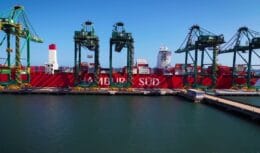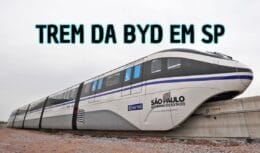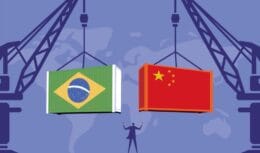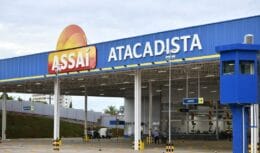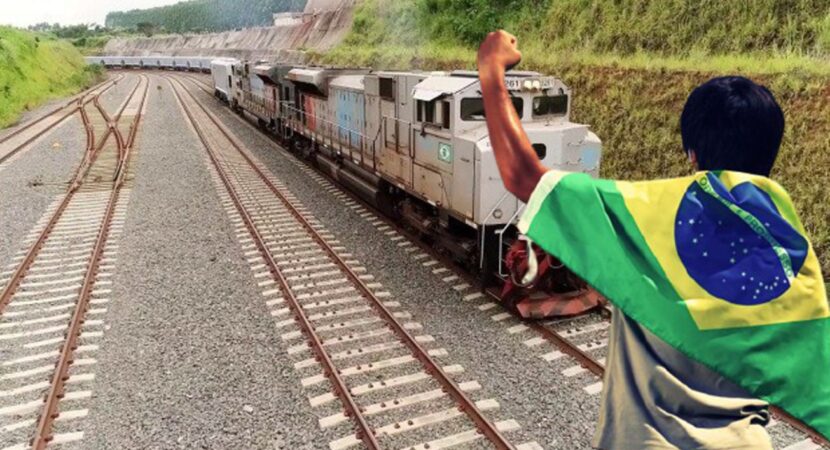
The PL of the railroads is also known as the landmark of the railroads. This week it was approved by the Chamber of Deputies and must now be sanctioned by the Presidency of the Republic.
Much has been discussed about the PL for railroads in recent days. No wonder. The proposal, long before being approved, was already considered as the most important logistics project in contemporary Brazilian history.
- Private railways: after more than 100 years, the government authorizes the insertion and construction of new projects, with more than R$ 50 billion in investments
- Multimodality through railroads is the way forward: the Federal Government signs the first contracts and the private sector can now develop projects for the Brazilian rail network
- Ministry of Infrastructure signs agreement with six companies to start construction of nine railroads by private initiative in the country
The reasons for its importance are diverse. Basically, it should modernize the Brazilian railway system, boosting the economy by improving the logistics chain that involves the distribution of products, mainly agribusiness.
Another essence of this improvement is that the private sector will have more freedom to invest in the construction of new railways and renovations of those that are currently in disuse due to lack of investment or finishing.
To give you an idea, more than half of the Brazilian railroads are from the XNUMXth century. That is, still from the times when Brazil was governed by Dom Pedro II.
In other words, it is Brazil's opportunity to redesign its railway system. A renaissance of the country's railroads, whose project required the union between private initiatives, the Executive Power and the National Congress.
In addition to modernizing the logistics system, the PL for railroads will make the transport matrix jump from the current 20% to 40% in up to 15 years, boosting the economy, generating jobs, growing the GDP, freeing up the roads and possibly increasing the possibility of transporting passengers.
Concession x authorization: understand the main changes of the new Marco das Ferrovias
Basically, the PL for the railroads brings about a change in the investment system of the private sector. It is a more liberal system on the part of the Union and that is celebrated by companies.
Shares on the railways move from concessions to permissions. That is, the State allows companies to invest in projects without pre-determination by the State.
The investor will assume the risk of the operation, but will act in projects that they understand to be in their interest. An investment expectation of around R$ 80 to 100 billion.
The Railways legal framework also standardizes and makes legal issues related to the sector clearer and more objective. The text of the PL also provides that the Union, states or municipalities can carry out rail transport under a direct regime.
The authorization for operating railways must be formalized through a fixed-term contract, the duration of which must be between 25 and 99 years.
What happens if the railroads are abandoned?
Despite the liberal system, the PL, which had already been approved by the Senate in October 2021, leaves questions about the abandonment of railroads now allowed by the Union for exploration.
In practice, the company that takes over the administration of the railway may lose the right to operate the railway activity in the event of negligence, malpractice or abandonment, due to irregular transfer of the authorization, and due to repeated non-compliance with the commitments assumed.
The idea is to reduce underutilization of the Brazilian rail network. According to the Ministry of Infrastructure, only 25% of the railroads are fully operational. And 46% have low traffic. Already 29% continue without any commercial operation.
Authorization requests are already being processed by the Federal Government
As we explained above, the new legal framework for railroads brings investment opportunities for the private sector, if companies understand that there are possibilities for returns.
Altogether there are already 48 requests for authorization filed in the Ministry of Infrastructure for works and renovations of certain stretches of railroads. See the Tweet from the Minister of Infrastructure, Tarcísio Gomes de Freitas:
At first, 14 Brazilian states will be reached. For each region, the expectation is the direct generation of jobs and ease in the disposal of products.
Also according to the Ministry of Infrastructure, the project creates competitiveness. And this can reduce the value of rail freight for companies by up to 40%.
“With more railway offer, Brazil will become an extremely competitive country. We will be able to transport cargo, for example, to Asia at lower prices than American producers, without a doubt”.
Tarcísio Freitas – Minister of Infrastructure
According to the rapporteur for the PL for railroads in the Chamber, federal deputy Zé Vitor (PL – Minas Gerais), investments would not be possible only on the part of the Public Power.
“Today the average cost for building a railroad plan is close to 10 million reais. So it's not such a simple investment. There must be a really big demand.”
Ze Vitor – Federal Deputy (PL – MG)
PL of the railroads was the result of a union between companies and public authorities
The proposal on the new legal framework for railroads reached the National Congress in 2018. In other words, it took three years until the end of the processing and approval.
The approval was not subject to great discussions and controversies of great proportions. The Workers' Party even submitted a request to remove the bill from the agenda. But there were 241 votes against the PT's request, 16 in favor and one abstention.
Deputy Pedro Uczai (SC) had asked for more time to debate the bill, which was reported in the Senate by a congressman from his own party, Jean Paul Prates (RN).
After approval, the House rapporteur praised the way in which the proposal was appreciated.
“The report was well prepared, the seams well done. Party leaders convinced that it is an important project for the country and above any party divergence”.
Zé Vitor – Federal Deputy (PL – MG)
Current situation of the Brazilian railway network and expectations for passenger transport
Currently, Brazil has around 30 kilometers of installed railway network. Of these, about 10 kilometers are idle or completely inoperative. Most railroads that were built over 100 years ago.
Meshes that no longer make sense today, considered idle, will now be able, with the renewal of railway concession contracts, to be used for other applications. One example of new possible applications is the passenger rail transport and tourist trains.
The Federal Government dazzles that the trails that cross many municipalities, with urban areas and with safety problems, can be destined for the city halls to become avenues, bike paths, parks, squares and other purposes in partnership with the city halls, states and the Executive National.
Agribusiness sectors are the biggest enthusiasts of railway expansion
The sectors that most defend railroad construction projects are those related to agribusiness. The new framework for railroads provides for a reduction in freight costs and more agility with the model.
The Ferrogrão auction is scheduled for the year 2022, which should connect the grain producing region of the Midwest to Pará, flowing into the Port of Miritituba.
The investment value is R$ 25,2 billion. A 69-year concession. In this example, agribusiness in general estimates a reduction of up to 40% in the freight price.
According to data Research and Extension Group in Agroindustrial Logistics (Esalq-Log), the sector moves more than 1 billion tons of cargo per year, including food, inputs, machinery and biofuels.
Considering that rail transport has the capacity to move large volumes with less fuel consumption, this should favor the competitiveness of the agricultural sector and bring efficiency gains.
While the production and export of products such as sugar, soy bran, corn and soy in grain grows, rail movement advanced timidly for these products.
That is, private railroads must be essential to make logistics more dynamic and efficient, in addition to unlocking investments that generate more business.
PL for railroads is a revolution in Brazilian transport
In the video below, professor in Geography and Current Affairs, Ricardo Marcílio, comments on the new landmark for railroads. The project is already considered a revolution in the history of Brazil.
PL for railroads and the new history of Brazilian transport being written
Modernization of the Brazilian railway network and relationship with exports
The Ministry of Infrastructure believes that with more railways cutting through Brazilian lands, the country will become an extremely competitive country at world level.
According to data from the Ministry of Infrastructure, the estimate has already been filed for a total investment of R$ 113,87 billion, with 7,78 kilometers of railway extension, based on the 42 projects already presented. Most proposals are still in the early stages of processing.
Should the new railway framework encourage incentives for cabotage?
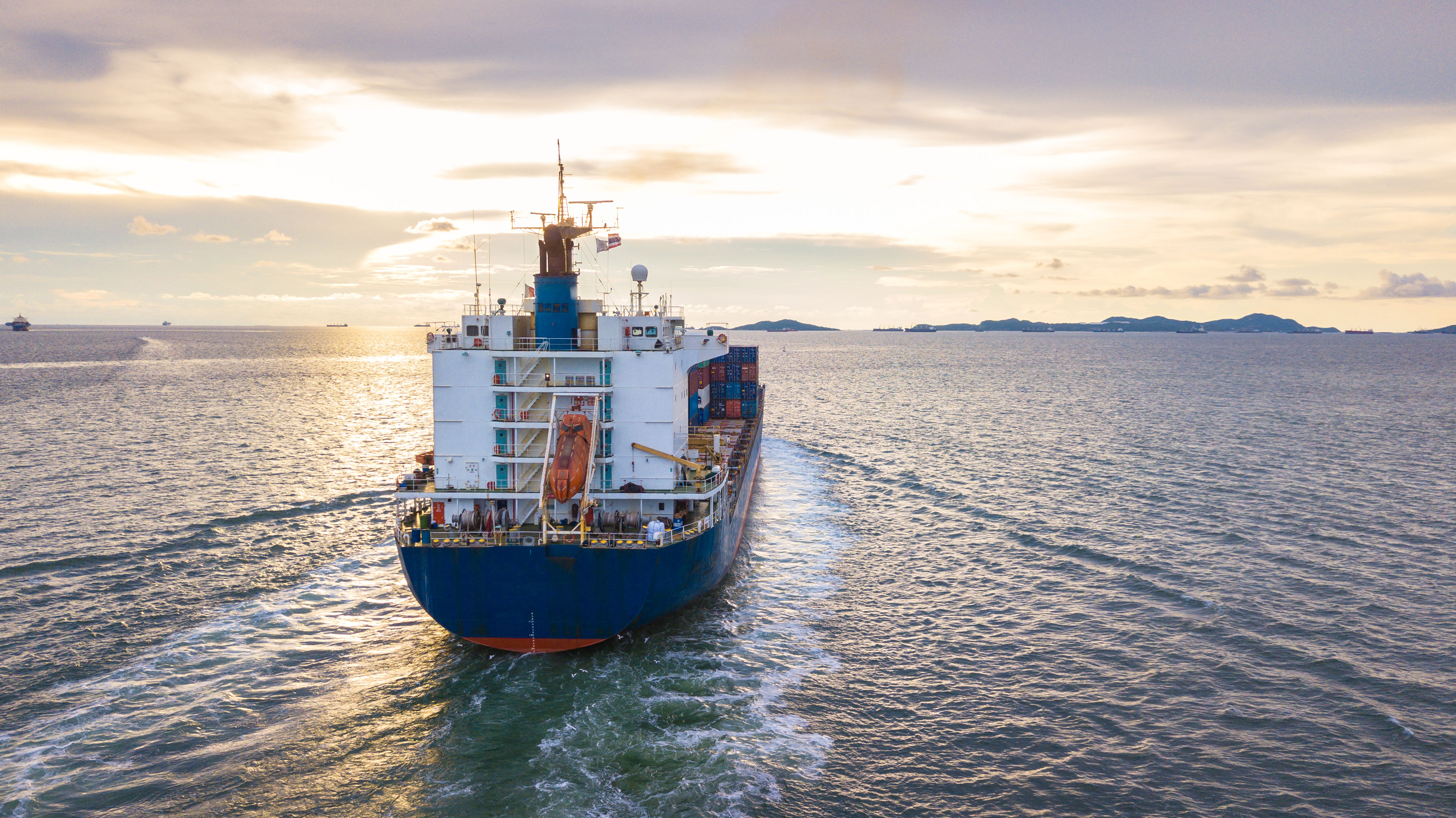
At the same time that the expansion of the railway system is a dream for the most diverse sectors of the Brazilian economy, the increase in the cabotage system also sails in the same dazzle for many and that can become reality through the BR DO MAR.
Cabotage is maritime transport between Brazilian ports. The products are packed in containers with regular shifts and fixed days of the week.
An alternative considered sustainable for cargo transport. In addition, cabotage can relieve land traffic and help with distribution logistics.
In the same week that the new railway framework was approved, federal deputies also approved the BR do Mar (4.199 PL / 2020).
Transport by boat between ports represents only 11% of the Brazilian logistics matrix. With BR do Mar, the expectation is that it will grow to 30%.
In addition, according to the Ministry of Infrastructure, it should increase the volume of containers transported per year from 1,2 million TEUs (20-foot equivalent unit) in 2019 to 2 million TEUs in 2022, and increase by 40% the capacity of the maritime fleet dedicated to cabotage in the next three years.
Like the PL for railroads, the cabotage legislative measure aims to increase supply, encourage competition, create new routes and reduce costs.
Proposal for a new rail network system could be better improved?
As we saw above, private sectors and Public Powers were hand in hand with common opinions on the importance of the new railroad framework. But is the favorable assessment of the whole text really unanimous?
For businessman Wilson Antunes, a specialist in metro-railway automation, there are issues that should be better evaluated in the Railroad Law Project.
According to Wilson, the Marco Ferroviário does not foresee a national network, a real planning that unites the railways in favor of transport communication throughout the country, from North to South, from East to West, from Oiapoque to Chuí, as they say.
“With this failure, we run the risk of having a large number of small railways that do not communicate, and this is very bad for the future and for the demands that, for now, we cannot even imagine that they may come to exist”.
Comments Wilson Antunes.
Another point, according to the businessman, is strict control over the construction of these railroads in order to minimize environmental risks, the invasion of indigenous lands and any type of degradation of the biomes through which the railroads will pass.
“The project is also flawed in terms of the possibility of a counterpart for each request. For example, the feasibility of rail transport for passengers as well, and not just for cargo, on the desired stretches, would be an extremely beneficial counterpart, contributing to the reduction of car traffic, the reduction in the use of fossil fuels and the sustainable development of the country. ”.
Put Wilson Antunes.
“Still, even with important adjustments to be made, Marco Ferroviário is a great step forward. Brazil is making the right move by paving the way for our railroads towards a more competitive, economic and sustainable future”.
Submits Wilson Antunes.
The officialization of the new railroad landmark takes place after the sanction of the President of the Republic, Jair Bolsonaro. The proposal then becomes law when it is registered in the Federal Official Gazette.




